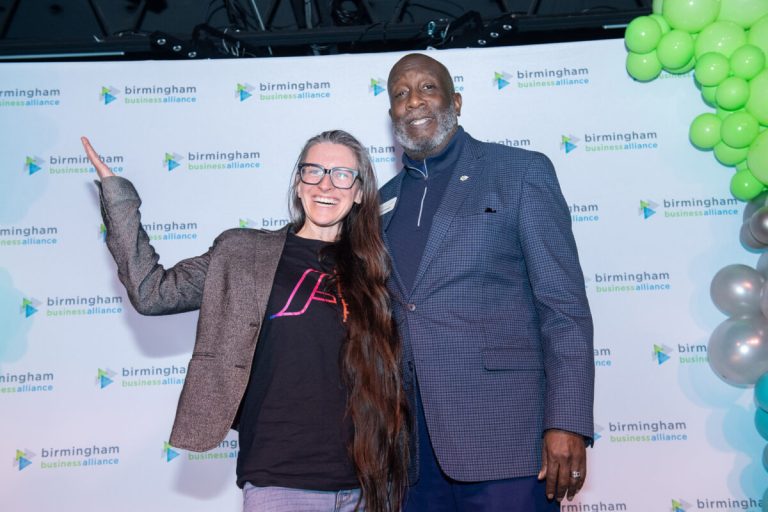CEO of Federal Reserve Bank of Atlanta shares economic insights via Zoom
Reading time: 4 minutes

On Wednesday, April 15, members of the Rotary Club of Birmingham and the Kiwanis Club of Birmingham hosted Raphael Bostic, President and CEO of the Federal Reserve Bank of Atlanta on a Zoom call. As the featured speaker, Raphael spoke about the current economic situation and how the Federal Reserve Banks are tackling the issue.
Introducing Raphael Bostic

After introductions and previous business, Rotary President Phillippe Lathrop introduced their guest speaker: Raphael Bostic, President and CEO of the Federal Reserve Bank of Atlanta.
The Federal Reserve Bank of Atlanta is one of 12 Federal Reserve Banks throughout the country. Federal Reserve Banks have three main functions:
- To conduct the nation’s monetary policy.
- Provide and maintain an effective and efficient payments system.
- To supervise and regulate banking operations.
Raphael Bostic joined the call to explain what actions the Atlanta Federal Reserve Bank has taken to curb the economic effects of the nationwide shutdown. Here is what we learned!
Our Situation

Bostic started off his presentation with a recap on current events. As we all know, the COVID-19 shutdown has caused a dramatic economic slowdown across the board. Although the most affected industries are those that are public-facing, nearly every industry has been affected in one way or another.
Businesses are trying to flatten the payroll curve with a variety of different actions, such as executive paycuts, reduced hours, and furloughing staff. Companies are resorting to these actions as they eat through their savings, due to a wide drop in demand.
Response of the Atlanta Federal Reserve Bank

“What we have is a situation where the public health response to an outside force has economic consequences. The good news is that this does not reflect a weakness in any fundamentals of our economy.”
Raphael Bostic, President and CEO, Federal Reserve Bank of Atlanta
Just before the virus hit, we had a stable economy, which was growing without significant risks. Once the outbreak is contained, the hope and goal is to return to exactly where we were before the virus.
In the meantime, the Federal Reserve Banks are helping to shore up struggling markets. Their goal is to make sure that basic markets that are required for raising capital stay in place. For instance, the Fed is working with their banking partners to help their customers as much as possible. So in simpler terms, if banks are making adjustments to loans and mortgages to provide some relief for families and small businesses, then they won’t see an increase in rates from the Fed.
Questions

After his presentation, Raphael Bostic took the time to answer some questions to help clear up any confusion:
What does the Federal Reserve consider the impact of massive increase in debt at every level in the US and worldwide?
Raphael Bostic: Once the economy is on its feet, we’ll try to return to normal stance as much as possible. We may be able to forgive debt and get beyond this in a relatively smooth way. Ultimately, much of the US economy based on consumer confidence.
The Payroll Protection Program was a good idea to provide relief to small business in order to retain employment. Will there need to be a second PPP program?
Raphael Bostic: The PPP was absolutely a good idea. If you believe, as I do, that most of these businesses have good business models, it would be very bad for the economy if they disappear. I would expect there to be more added to the PPP, but it all comes back to one question: when do we get the public health issue under control?
When we open for business, will there be a tendency for business to raise prices to catch up on lost profits?
Raphael Bostic: At the Atlanta Fed we talk about inflation a lot, as it is one of our basic metrics of performance. A business can only set prices to what the market will support. Since a lot of families and companies won’t have a lot to spend, the situation isn’t right for an aggressive rise in prices. I’m not particularly worried about it.



